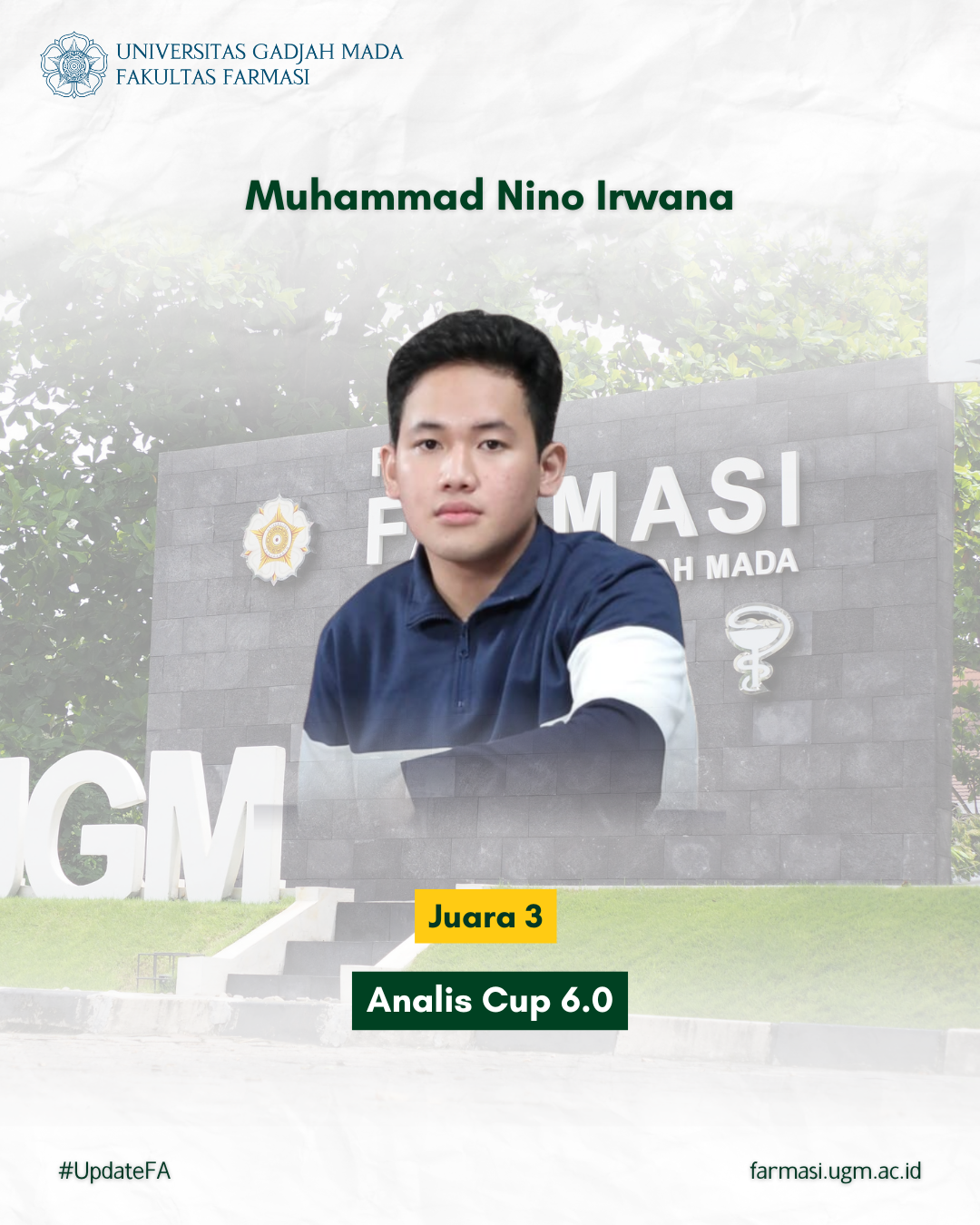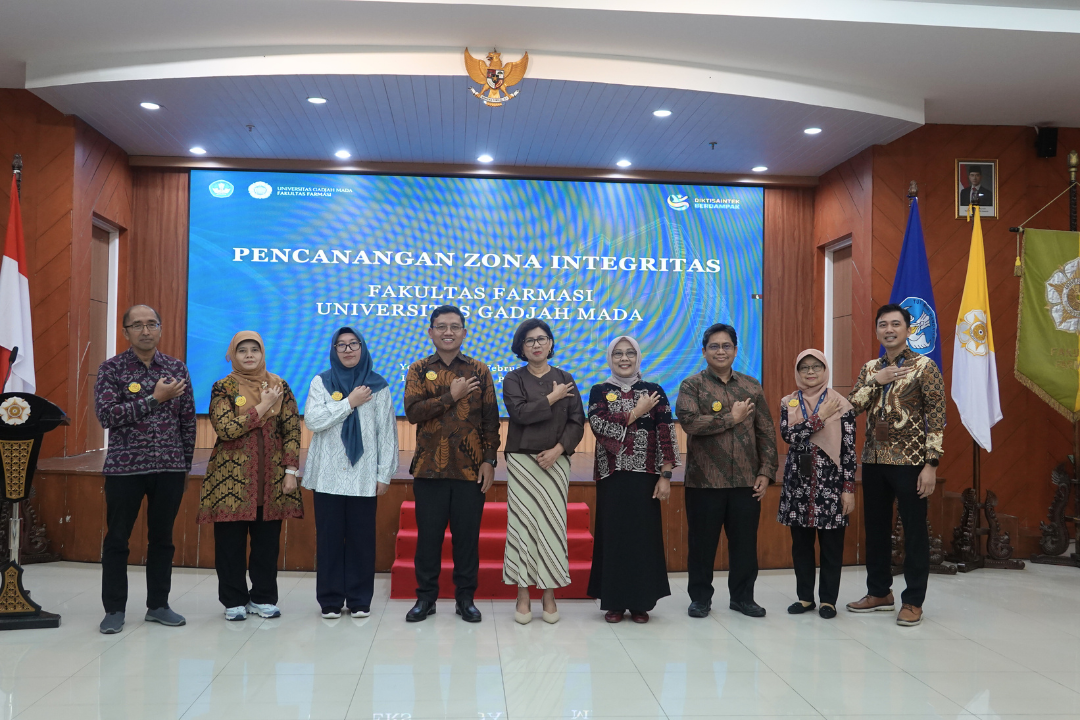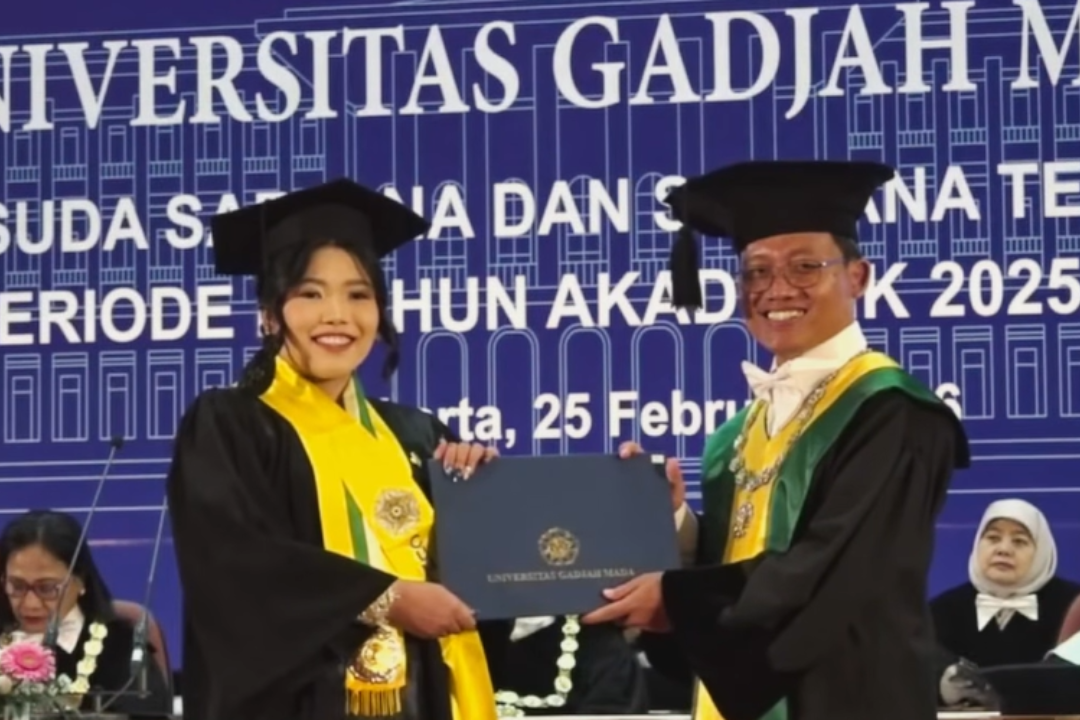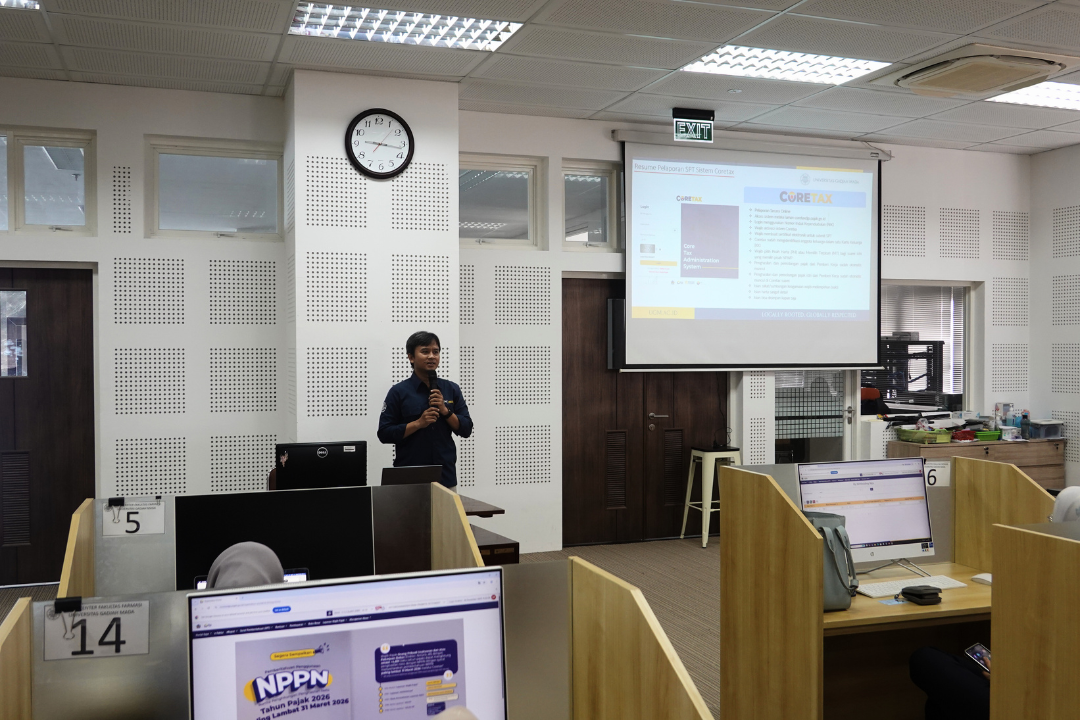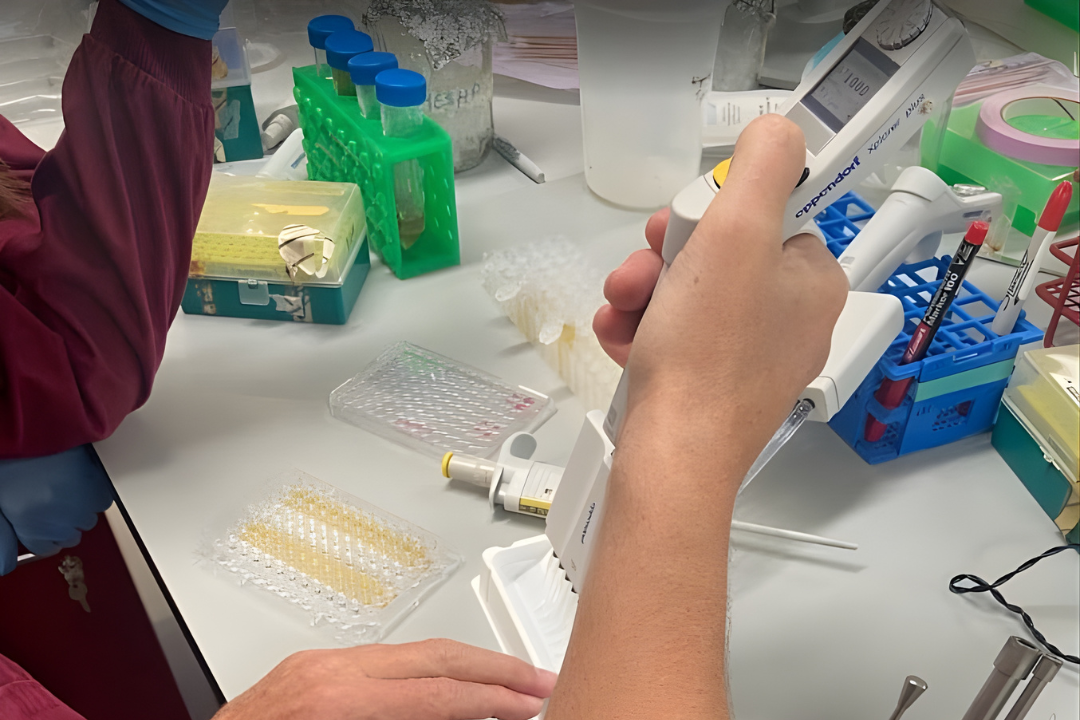Yogyakarta, May 5, 2025 – Muhammad Nino Irwana, a 2021-batch student from the Faculty of Pharmacy at Universitas Gadjah Mada (UGM), has won 3rd Place in the national Analis Cup 6.0 (ANCUP 6.0) competition. The prestigious event, organized by Universitas Nahdlatul Ulama Surabaya (UNUSA) in 2025, serves as a platform for students to present innovations in the fields of health and pharmacy.
In the online competition, Nino advanced to the final round after his scientific essay was selected as one of the top five entries. He then presented his concept directly to the judges, proposing an innovative solution for breast cancer therapy.
The innovation centers on utilizing piperine, an active compound from the local Javanese chili plant (Piper retrofractum), which shows potential as an anti-cancer agent. The concept was elevated by combining this natural ingredient with modern pharmaceutical technology: a Transdermal Drug Delivery System (TDDS) using the iontophoresis method. This technology enables targeted drug delivery through the skin with the help of a low-level electrical current, which can minimize the side effects common in conventional chemotherapy.
This forward-thinking idea not only demonstrates academic excellence but also aligns with the spirit of the Sustainable Development Goals (SDGs). Its primary focus on developing a more effective cancer therapy with fewer side effects is a direct contribution to ensuring Good Health and Well-being (SDG 3). Furthermore, the approach of combining local natural resources with modern drug delivery technology like iontophoresis reflects a strong commitment to Industry, Innovation, and Infrastructure (SDG 9) by promoting research and development in health technology. The use of Javanese chili as a raw material also supports the principles of Responsible Consumption and Production (SDG 12) by promoting the sustainable, value-added use of local biodiversity.
“I am grateful for this award. My motivation was to find a more patient-friendly alternative for cancer therapy. Indonesia has incredible biodiversity, like the Javanese chili, whose potential has not been fully explored,” Nino stated. “By combining it with technology, we can create health solutions that are not only effective but also more affordable and sourced from our own natural wealth. I hope this idea can be developed further through research.”
Muhammad Nino Irwana’s success in the ANCUP 6.0 competition once again proves the dedication of UGM students in addressing global health challenges through impactful research and innovation, and it is hoped that his work will inspire other students to continue creating.

